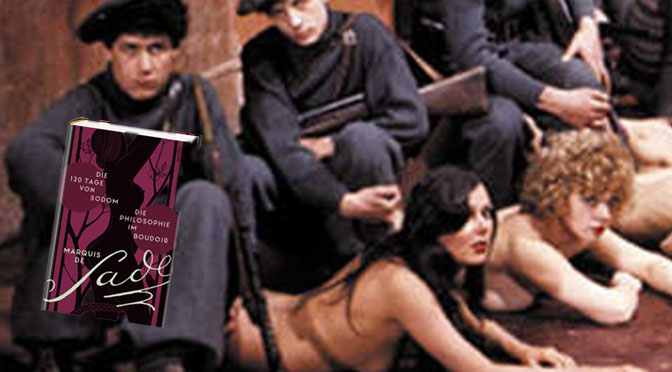The “120 Days of Sodom” by Marquis de Sade is a work that has caused controversy since its creation in the 18th century. This book, written by de Sade during his imprisonment in the Bastille, is a radical testimony of violence, sex and power that challenges the boundaries of human morality and ethics in a way that continues to disturb many readers and critics to this day.
Content and Themes
De Sade’s novel tells the story of four libertine noblemen who retreat to a remote castle with a group of victims and female narrators to engage in every conceivable and inconceivable sexual debauchery over a period of four months. The book is structured in four parts, with each narrator relating the story of a “passion” that leads from innocence to cruelty.
Themes that de Sade addresses include:
- Power and Oppression: The nobles use their power to act out their darkest fantasies, which may be a parable on the exploitation of power structures in society.
- Morality and Ethics: De Sade questions whether there can be morality in a world without God or fixed moral principles.
- Freedom and perversion: The novel explores the idea of absolute freedom, which leads to absolute decadence.
Censorship and reception
Since its first publication, “120 Days of Sodom” has been subject to censorship and bans. In many countries, the book was considered obscene and was banned, in some cases even into the second half of the 20th century.
Passolini’s film adaptation and censorship
Pier Paolo Pasolini adapted the work in his film “Salò, or the 120 Days of Sodom”, which was released in 1975. This film adaptation is known for its blunt portrayal of violence and sexual perversion and has also received a controversial reception:
- Censorship: Many countries have censored or outright banned the film. In some countries, it was only shown in a heavily abridged version, and the uncut version was hardly accessible for decades. Even in countries that later released the film, there were repeated attempts to ban or censor it.
- Cultural significance: Pasolini’s film is not only known for its shocking effect, but also for its profound analysis of fascism, power and human cruelty. He uses de Sade’s framework to formulate a critique of Italian society and the post-war period.
“The 120 Days of Sodom” and its film adaptation reflect the tension between human nature, morality, power and freedom. Both the book and the film are works that force us to reflect on the limits of our tolerance and moral convictions. The long-standing censorship not only shows the power of cultural norms, but also the potential of art to challenge and break these norms.
The continuous debate about de Sade and Pasolini underlines that such works, however provocative they may be, play an essential role in the discussion about freedom, art and human nature.

